2021 ACISTE Annual Conference
About the Conference
Please join us for our first virtual event!
UP TO 24 HOURS OF CEs AVAILABLE*
The main conference will be held from 11am to 7:30pm EST – Online
Friday, October 8, 2021 and Saturday , October 9, 2021.
Conference recordings will be available to ticket holders for 30 days.
The Main Conference tickets sales are non-refundable.
Please consider becoming an ACISTE Certified Professional
The Certification Training Day will be held virtually, date TBA. Register for certification when registering for the main conference.
ACISTE Certified MHP Application 2021
2021 MHP and SGC SGC Conference Promo
ACISTE Certified MHP Application 2021
2021 MHP and SGC SGC Conference Promo
According to ACISTE’s first survey of 60 experiencers, 50% dealt with depression, 10% suffered from substance abuse, 6.7% had attempted suicide as a direct or indirect consequence of their STE(s). Only 5% indicated they had no challenges. Experiencers need therapists trained in differential diagnosis and the integration needs of spiritually transformative experiences.
This year’s presenters
Suzy Ross, Ph.D., CTRS, RTC
The Figure-8 Model of a Complete Transformation: An Empirically-Based Understanding of the Integration of Transformation
Abstract
The Figure-8 Model of a Complete Transformation draws upon and corroborates with literature of 13 disciplines and is the result of over fifteen years of analysis seeded in this presenter’s doctoral research. Using a qualitative method called cooperative inquiry, coresearchers analyzed the lived experience of integrating transformative experiences that occurred during international travel facilitated as sacred play. The intent of the seminal study was to discern through cycles of embodied activities and critical discourse, if there is an underlying archetypal pattern to integrating life-changing, spiritual experience. The result produced a figure-8 pattern, which is illustrated in a book written by this presenter called, The Map to Wholeness: Real-life Stories of Crisis, Change, and Reinvention. Specifically, the research indicates that integration involves nine distinct phases that in total, clarify the necessity of struggle, strife, loss, and emotional anguish during integration. The outcomes further affirm why the majority of people who have had a STE struggle with depression, substance abuse, and other problems. In this session you will learn The Model of a Complete Transformation, it’s two cycles and 13-phases, and the aspects of self that the biopsychospiritual system integrates.Presenter Bio
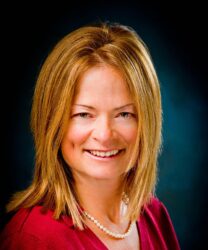 Susan Ross is an Assistant Professor and Coordinator of Recreation Therapy in the Department of Health Science and Recreation at San José State University. Her primary research examines psychospiritual transformation from transdisciplinary perspectives and is the subject of her book, The Map to Wholeness: Real-Life Stories of Crisis, Change, and Reinvention. Her research on the subject of transformation and integration is fundamentally informed by personal experience of transcendent realms that transpired while leading backpacking trips for youth in the mountain-tops of Colorado. Her current research investigates experience of swimming with humpback whales. In partnership with indigenous elders, she co-leads study abroad designed as transformative travel where students learn traditional energy healing practices called pujillay, or sacred play. As a consultant and speaker, Suzy helps agencies, groups, and individuals to recognize their location in the process of transformation so they can normalize their present circumstances as an integral part of transformation (i.e., of their own becoming) and be informed about how to take control with their circumstances and grow consciously.
Susan Ross is an Assistant Professor and Coordinator of Recreation Therapy in the Department of Health Science and Recreation at San José State University. Her primary research examines psychospiritual transformation from transdisciplinary perspectives and is the subject of her book, The Map to Wholeness: Real-Life Stories of Crisis, Change, and Reinvention. Her research on the subject of transformation and integration is fundamentally informed by personal experience of transcendent realms that transpired while leading backpacking trips for youth in the mountain-tops of Colorado. Her current research investigates experience of swimming with humpback whales. In partnership with indigenous elders, she co-leads study abroad designed as transformative travel where students learn traditional energy healing practices called pujillay, or sacred play. As a consultant and speaker, Suzy helps agencies, groups, and individuals to recognize their location in the process of transformation so they can normalize their present circumstances as an integral part of transformation (i.e., of their own becoming) and be informed about how to take control with their circumstances and grow consciously.Devi Prem, PhD
Drawing Strength from Spiritually Transformative Experiences in Times of Crisis
Abstract
Dr. Devi Prem will present a practical approach to working with clients in times of personal or collective crisis. When sudden changes happen in a person’s life, may it be due to an injury or outer force, inner balance tends to be disrupted. Dr. Prem will outline the importance of bringing the mind and body in alignment with the soul. Her approach is soul-oriented. Once the client has access to the soul, balance in the mind can be re-established. She will utilize meditation and creative expression to access prior spiritually transformative experiences to draw strength from. You will receive a toolset of short meditation practices and an approach for creative expression. Further Dr. Prem will speak to the power of gratitude drawing from her research.Presenter Bio
 Dr. Devi Prem has a Ph.D. in Psychology from the Institute of Transpersonal Psychology at Sofia University. She additionally holds certifications in Transformational and Somatic Coaching, Meditation, Movement, and Creativity. The core of her spiritual training was a residential academic program (Gurukulam) in Meditation and Interfaith, including Sanskrit, in an ashram in India. She has been teaching, coaching, and mentoring seekers on the spiritual path across cultures and religions internationally since 2002. She enjoys counseling peers in an integral psychological approach to mental health. She is the founder of CFIT Center for Integrating Transcendence with a focus on supporting individuals to manifest their professional life mission in order to make a difference in this world. She is a coach of coaches, enhancing leadership skills and personal alignment. She is a member of the Association of Transpersonal Psychology (ATP) and the International Expressive Arts Therapy Association (IEATA) as well as Strozzi Institute of Embodied Leadership. She presented at the SANDS Nondual and the IEATA conferences. Devi currently resides in Ashland, OR while enjoying international connections.
Dr. Devi Prem has a Ph.D. in Psychology from the Institute of Transpersonal Psychology at Sofia University. She additionally holds certifications in Transformational and Somatic Coaching, Meditation, Movement, and Creativity. The core of her spiritual training was a residential academic program (Gurukulam) in Meditation and Interfaith, including Sanskrit, in an ashram in India. She has been teaching, coaching, and mentoring seekers on the spiritual path across cultures and religions internationally since 2002. She enjoys counseling peers in an integral psychological approach to mental health. She is the founder of CFIT Center for Integrating Transcendence with a focus on supporting individuals to manifest their professional life mission in order to make a difference in this world. She is a coach of coaches, enhancing leadership skills and personal alignment. She is a member of the Association of Transpersonal Psychology (ATP) and the International Expressive Arts Therapy Association (IEATA) as well as Strozzi Institute of Embodied Leadership. She presented at the SANDS Nondual and the IEATA conferences. Devi currently resides in Ashland, OR while enjoying international connections.Zachary Feder
Mitigating the Catastrophic Effects of Psycho-Spiritual Transformation upon Self and Family
Abstract
Every family has someone who undergoes a psycho-spiritual transformation, something that can act as a catalyst for the lineage and unshift the level of healing, communion and integrity of the individuals involved. However without understanding the nuances and psychological requirements of the phenomenon the child going through the process will often become the "black sheep" of the family, the "scapegoat", the "sin eater" and in the worst of scenarios "the leper" - because their transformation has been misunderstood, marginalized, and even banished altogether by the tribe, which will only repeat the cycle of family trauma and give rise to illness, often times chronic. In this presentation you will hear the most common trends of undergoing this transition upon self and family following fifteen years of hand on support and research in the field and how best to realign the child's transformation back to its most generative archetype.Presenter Bio
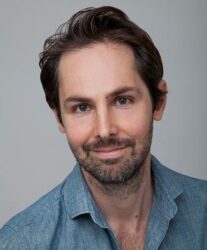 Zachary is an expert in the field of psychological and spiritual development, specifically in the context of chronic illness. Zachary works remotely in conjunction with a team of seasoned therapists at Opening to Life in Portland Oregon as well as with a specialized network of doctors, body workers and shamans at Sophia Health Institute in Woodinville Washington. Zachary uses a wide variety of modalities including developmental psychology, trans-personal hypnotherapy, family constellation, energy medicine, Jungian and Archetypal analysis and Autonomic Response Testing.
Zachary is an expert in the field of psychological and spiritual development, specifically in the context of chronic illness. Zachary works remotely in conjunction with a team of seasoned therapists at Opening to Life in Portland Oregon as well as with a specialized network of doctors, body workers and shamans at Sophia Health Institute in Woodinville Washington. Zachary uses a wide variety of modalities including developmental psychology, trans-personal hypnotherapy, family constellation, energy medicine, Jungian and Archetypal analysis and Autonomic Response Testing.Julia Sellers , Mgr., Bc., BA HONRS, BDiv., MACCPH
Transpersonal and transformative potential of anomalous perceptual experiences with the emphasis on out-of-body experiences
Abstract
My presentation aims at describing phenomenology, semiology and the transpersonal potential of autoscopic phenomena such as out-of-body experiences (OBEs) as well as other experiences based on anomalous perception. I will present an anecdotal as well as first and second hand description of OBEs experienced by two experiencers. I will further discuss transformative and transpersonal element of OBEs. My presentation introduces a new approach of researching OBEs based on direct know how, mastery and first hand observation by experiencers themselves. Over the last 20 years I have been compiling characteristics (typology) of OBEs and researching the transformative potential of these extraordinary experiences. I will further present my belief that OBEs in healthy individuals are an essential part of the development of human psyche as well as what could be referred to as extraordinary or transcendental states of consciousness. I strongly believe that OBEs are life’s transformative events that bring a host of potential benefits to their experiencers, especially in the form of spiritual transformation. They have potential to help people on their journey of spiritual emergence leading to transformation and even transcendence. OBEs further hold a high potential to heal both on the psychological as well as physical level. In my presentation I will further argue that OBEs do not require special conditions such as sleep, near death experience, extreme physical effort, or induction (mental, mechanical or chemical) to occur. Rejection of subjective experience is quite strong in mainstream science. Therefore examining the insights of subjective experience will greatly contribute to strengthening of holistic approach both in the OBEs as well as the consciousness study in general. In the second part of my presentation I will introduce The SEA Slovakia/Czechia (Spiritual Emergence Anonymous in Slovakia and Czechia), a grassroots 12-Step program for Spiritual Emergence. The aim of the program is to support spiritual emergers and help individuals who are undergoing psycho-spiritual crisis known as spiritual emergency.Presenter Bio
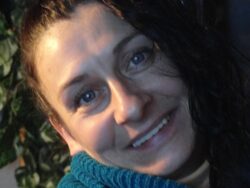 Born in Banovce nad Bebravou, in Western Slovakia (former Czechoslovakia), Julia experienced her first out-of-body experience in 1995. Since then, she has devoted all of her time to the study of out-of-body experiences. Julia has degrees in Law, Russian Area & Cultural Studies, Pedagogy, and Divinity. She also briefly studied Journalism, Phytopathology, Political Science, and International Affairs. She studied in the former USSR, USA, Slovakia, and in the Czech Republic. Fluent in four languages, she has dual American and Slovak citizenship. She is a former translator-interpreter, a lecturer in the Russian language, and an English teacher at the first private school in the Slovak Republic focused on the behavioral problems of children with learning disabilities and emotional problems. Executive Manager and head of the international section of the presidential election campaign (Slovakia), she is the foreign relations adviser to the ex-Prime Minister of the Slovak Republic, an analyst for the Department of International Relations, deputy manager of the central election campaign, a foreign correspondent accredited to the US Department of State, and a freelance writer and lobbyist. She also worked for the Fund for Constitutional Government based in Capitol Hill, Washington, D.C.
Born in Banovce nad Bebravou, in Western Slovakia (former Czechoslovakia), Julia experienced her first out-of-body experience in 1995. Since then, she has devoted all of her time to the study of out-of-body experiences. Julia has degrees in Law, Russian Area & Cultural Studies, Pedagogy, and Divinity. She also briefly studied Journalism, Phytopathology, Political Science, and International Affairs. She studied in the former USSR, USA, Slovakia, and in the Czech Republic. Fluent in four languages, she has dual American and Slovak citizenship. She is a former translator-interpreter, a lecturer in the Russian language, and an English teacher at the first private school in the Slovak Republic focused on the behavioral problems of children with learning disabilities and emotional problems. Executive Manager and head of the international section of the presidential election campaign (Slovakia), she is the foreign relations adviser to the ex-Prime Minister of the Slovak Republic, an analyst for the Department of International Relations, deputy manager of the central election campaign, a foreign correspondent accredited to the US Department of State, and a freelance writer and lobbyist. She also worked for the Fund for Constitutional Government based in Capitol Hill, Washington, D.C.Lindsey T. Owens, MA
Widening the Sacred: Cultivating Resilience Through the Integration of Spiritually Transformative Experiences (STEs)
Abstract
After 20 years of gathering stories of STEs, this formal presentation will explore common themes and universalities typically found within those experiences to glean the potential foundational phenomenological qualities of consciousness and the integration of those particular attributes. Difficulties in regard to integration can be seen as an inability to successfully merge what was learned “there” into one’s life “here” to some degree or capacity. Using STEs as a way to develop a spiritual philosophy in order to protect against a tendency toward maladaptive coping patterns will also be discussed. As we continue the crucial work to assist individuals with integration of STEs, it is also time to meet individuals in the middle of their integration processes by shifting some focus to the alteration of broader systems within the collective as well to accommodate and assimilate this information.Presenter Bio
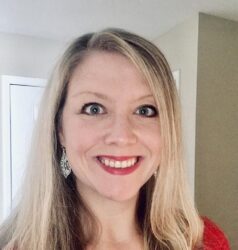 Lindsey Owens is a four-time spontaneous mystical experiencer and a teacher, researcher, poet, and enthusiast in the realm of alternate states of consciousness and what we can learn from them in terms of our personal and collective evolutions. She holds a BA in psychology from Georgia Southern University, two MAs in psychology (one in humanistic and transpersonal psychology from University of West Georgia and one in clinical psychology with a concentration in spirituality and mind/body practices from Teachers College, Columbia University), and recently accepted an offer of admission into the PhD program in medical/clinical psychology at University of Alabama at Birmingham starting Fall 2021. She currently works at NYU as a senior research coordinator for multiple clinical trials exploring different psychedelic treatments across varying indications, has served as a psychedelic session guide for participants in the concluding Phase 2 psilocybin for alcohol use disorder trial, and is finishing her training to become a Dreamshadow Transpersonal Breathwork facilitator. She hopes to continue inquiry not only regarding the nature of exceptional experiences and their effects but also how best to integrate them in a way that builds resilience and yields sustainable change.
Lindsey Owens is a four-time spontaneous mystical experiencer and a teacher, researcher, poet, and enthusiast in the realm of alternate states of consciousness and what we can learn from them in terms of our personal and collective evolutions. She holds a BA in psychology from Georgia Southern University, two MAs in psychology (one in humanistic and transpersonal psychology from University of West Georgia and one in clinical psychology with a concentration in spirituality and mind/body practices from Teachers College, Columbia University), and recently accepted an offer of admission into the PhD program in medical/clinical psychology at University of Alabama at Birmingham starting Fall 2021. She currently works at NYU as a senior research coordinator for multiple clinical trials exploring different psychedelic treatments across varying indications, has served as a psychedelic session guide for participants in the concluding Phase 2 psilocybin for alcohol use disorder trial, and is finishing her training to become a Dreamshadow Transpersonal Breathwork facilitator. She hopes to continue inquiry not only regarding the nature of exceptional experiences and their effects but also how best to integrate them in a way that builds resilience and yields sustainable change.Dr. Rosie Kuhn
Applications of Practice for Working with Individuals Integrating STE’s
Abstract
This presentation clearly outlines principles, tools and skills which bring efficacy to the process of integration of STE’s. As therapists, spiritual guides, and life and spiritual coaches, our work is the same:- To create a context within which experiencers can experience themselves as whole beings, capable of transcending the barriers to the fulfillment of their human-spirit.
- To create a space within which an individual grows their capacity for courage and strength, in order to endure their worst fears, their darkest moments, and the ecstatic joys accessible and available only through human existence.
- To cultivate self-trust, self-acceptance, self-reverence in order to willingly choose the path that is their’s and their’s alone.
- To emancipate oneself from limiting perceptions and interpretations through which they have seen the world - up until their STE.
- To Faith-Leap into a Paradigm Shift where transformative experiences and knowing is given space and reverence, in the here and now of their human existence, and much more will be discussed in relationship to how to empower clients in the integration process.
Presenter Bio
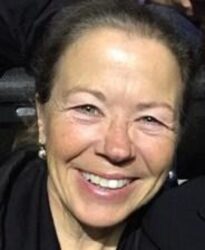 Dr. Rosie Kuhn, author of the popular book, ‘Self-Empowerment 101’ and founder of The Paradigm Shifts Coaching Group, is the preeminent Thought Leader in the field of transformational coaching, coach training, and leadership development.
Rosie began her career over 30 years ago as a clinical therapist for addiction recovery programs in Nova Scotia, Canada. In 1999 she founded The Paradigm Shifts Coaching Group, and in 2001, she created the Transformational Coaching Training Program in Silicon Valley, which she facilitated for over a decade.
Dr. Rosie Kuhn, author of the popular book, ‘Self-Empowerment 101’ and founder of The Paradigm Shifts Coaching Group, is the preeminent Thought Leader in the field of transformational coaching, coach training, and leadership development.
Rosie began her career over 30 years ago as a clinical therapist for addiction recovery programs in Nova Scotia, Canada. In 1999 she founded The Paradigm Shifts Coaching Group, and in 2001, she created the Transformational Coaching Training Program in Silicon Valley, which she facilitated for over a decade.Dr. Terri Daniel
Mystical Experiences of the Dying: Multi-Cultural Perspectives
Abstract
Mystical experiences at end-of-life -- such as deathbed visions, out-of-body journeys and near-death experiences -- have been recorded since the beginning of human history. These accounts appear in sacred texts across cultures and religions, but did not enter the realm of contemporary academic research until the 1970s, when Dr. Raymond Moody and Dr. Melvin Morse published their findings on near-death experience. Since then, the topic has been widely studied, and reports from resuscitated patients have entered the medical mainstream through the work of contemporary researchers, most notably, Dr. Sam Parnia and Dr. Pim Van Lommel. In this presentation we will explore:1. Types of EOL spiritual experiences 2. Historical, religious and cultural influences 3. Current research 4. How to support patients having these experiences 5. Promoting acceptance of these experiences in clinical settings.Presenter Bio
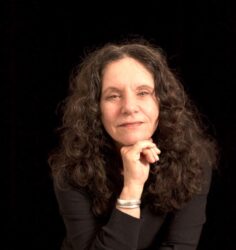 Terri Daniel, DMin, CT,CCTP is an interfaith clinical chaplain, trauma specialist and end-of-life educator certified in death, dying and bereavement by the Association of Death Education and Counseling and in trauma support by the International Association of Trauma Professionals. Her work focuses on assisting dying and grieving individuals to discover a more spiritually-spacious understanding of death and beyond.
Terri conducts workshops throughout the U.S. to help the dying and the bereaved find healing through meditative, ritual and therapeutic processes that focus on inner transformation rather than external events. Her books and workshops are acclaimed by physicians, hospice workers, grief counselors, religious scholars and the bereaved for their pinpoint clarity on loss and bereavement.
Terri's interest in the journey of the soul through birth and death began at age 12 when she began having mystical visions that sparked a lifelong interest in spirituality. But it wasn't until the death of her 16 year-old son in 2006 that she immersed herself in studying multi-cultural religious traditions and metaphysical practices that help the dying and the living find healing through meditative and ritual processes that open a conduit to other dimensions. Her unique form of "radical mysticism" incorporates elements of Buddhism, Shamanism, ancient pagan practices, gnostic Christianity and other spiritual traditions to break down limiting beliefs about forgiveness, divine judgment and negative experience. Terri is the author of four books on death and the afterlife:
Terri Daniel, DMin, CT,CCTP is an interfaith clinical chaplain, trauma specialist and end-of-life educator certified in death, dying and bereavement by the Association of Death Education and Counseling and in trauma support by the International Association of Trauma Professionals. Her work focuses on assisting dying and grieving individuals to discover a more spiritually-spacious understanding of death and beyond.
Terri conducts workshops throughout the U.S. to help the dying and the bereaved find healing through meditative, ritual and therapeutic processes that focus on inner transformation rather than external events. Her books and workshops are acclaimed by physicians, hospice workers, grief counselors, religious scholars and the bereaved for their pinpoint clarity on loss and bereavement.
Terri's interest in the journey of the soul through birth and death began at age 12 when she began having mystical visions that sparked a lifelong interest in spirituality. But it wasn't until the death of her 16 year-old son in 2006 that she immersed herself in studying multi-cultural religious traditions and metaphysical practices that help the dying and the living find healing through meditative and ritual processes that open a conduit to other dimensions. Her unique form of "radical mysticism" incorporates elements of Buddhism, Shamanism, ancient pagan practices, gnostic Christianity and other spiritual traditions to break down limiting beliefs about forgiveness, divine judgment and negative experience. Terri is the author of four books on death and the afterlife:
- A Swan in Heaven: Conversations Between Two Worlds (2007)
- Embracing Death: A New Look at Grief, Gratitude and God (2010)
- Turning the Corner on Grief Street: Loss and Trauma as a Journey to Awakening (2014)
- Grief and God: When Religion Does More Harm Than Healing (2019)
Dr. Nicole Gruel
The Perks & Perils Of Awakening
Abstract
As fascinating as spiritually transformative experiences are, what happens beyond them is equally fascinating. In fact, where integration of such experiences begins and ends is a very fuzzy line, and some experiencers would offer that integration can be a life-long process. Navigating life beyond profound STEs and awakening experiences is full of paradox. It is simple, yet complex. It is easy, yet hard. It is a joy, yet painful. Experiencers often navigate clear stages after their experiences that include understanding the gifts of the experience, discovering their own gifts, moving into meaningful service, and being an active and engaged citizen in a world plagued by problems. Along the way, they discover the many perks and perils of life as a modern person with expanded consciousness.Presenter Bio
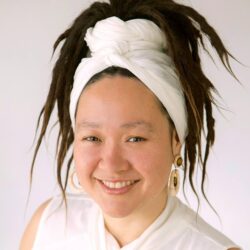 Dr. Nicole Gruel is an Author, Doctor of Spiritual Health, and Cheerleader for Agents of Awesome, who descends from a long line of samurai. She inspires people to harness their spiritual and transformative experiences for life prosperity, joyful livelihood, and to become the Agents of Awesome they were born to be. Her books have been featured in leading wellbeing magazines and she’s been published in peer-reviewed academic journals. Her newest book, a finalist in the prestigious INDIES Award, is The Power of NOTEs: How Non-Ordinary Transcendent Experiences Transform The Way We Live, Love, and Lead. She’s an Advisory Board Member for Spiritual Awakenings International (SAI) and co-facilitates the Sydney chapter of the International Association for Near Death Studies (IANDS).
Dr. Nicole Gruel is an Author, Doctor of Spiritual Health, and Cheerleader for Agents of Awesome, who descends from a long line of samurai. She inspires people to harness their spiritual and transformative experiences for life prosperity, joyful livelihood, and to become the Agents of Awesome they were born to be. Her books have been featured in leading wellbeing magazines and she’s been published in peer-reviewed academic journals. Her newest book, a finalist in the prestigious INDIES Award, is The Power of NOTEs: How Non-Ordinary Transcendent Experiences Transform The Way We Live, Love, and Lead. She’s an Advisory Board Member for Spiritual Awakenings International (SAI) and co-facilitates the Sydney chapter of the International Association for Near Death Studies (IANDS).Dr. Kylie Harris
Spiritual Emergence(y) and Personality: Exploring the Role of Schizotypy
Abstract
Dr. Harris will present the findings of my PhD research, which explored the role of schizotypy in relation to the experience of spiritual emergence(y). Schizotypy is a personality variable that has demonstrated a relationship with clinical psychosis. However, my research supports previous findings that psychotic-like symptoms are not necessarily associated with pathology, which necessitates a reconceptualization of current diagnostic criteria. The results also demonstrated measurable clinical and personality markers that may help: (1) identify cases of diagnosed clinical psychosis that may be best treated using a spiritual emergence(y) framework, and (2) identify individuals who may be at risk of experiencing the potentially debilitating effects of spiritual emergence(y).Presenter Bio
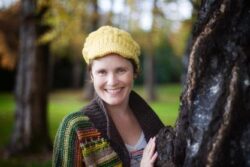 Kylie P. Harris, PhD, is an independent research psychologist, writer, and activist from Australia. She is an academic at the University of New England, and a research assistant for The Juice Media. Her doctoral thesis investigated the relationships between spiritual emergence(y), psychosis, and personality. She has presented her work at local and international conferences, and published book chapters and journal articles in peer reviewed journals. She is a founding board director of The Australian Centre for Consciousness Studies, a member of the Emergent Phenomenology Research Consortium, and an Ambassador for the WallOBooks and Great Life Choice programs.
Kylie works experientially and her research is guided by personal experience. She is interested in investigating the psychology of climate change and the global crisis; and shamanic and Indigenous perspectives towards healing and transformation. She also enjoys writing and presenting for the general population, including radio and podcast interviews for mainstream audiences.
Kylie P. Harris, PhD, is an independent research psychologist, writer, and activist from Australia. She is an academic at the University of New England, and a research assistant for The Juice Media. Her doctoral thesis investigated the relationships between spiritual emergence(y), psychosis, and personality. She has presented her work at local and international conferences, and published book chapters and journal articles in peer reviewed journals. She is a founding board director of The Australian Centre for Consciousness Studies, a member of the Emergent Phenomenology Research Consortium, and an Ambassador for the WallOBooks and Great Life Choice programs.
Kylie works experientially and her research is guided by personal experience. She is interested in investigating the psychology of climate change and the global crisis; and shamanic and Indigenous perspectives towards healing and transformation. She also enjoys writing and presenting for the general population, including radio and podcast interviews for mainstream audiences.Amy Mehus
Spiritual Transformation Through the Psychological Crisis: An Analysis from Withing and Insights for Recovery
Abstract
Amy will share a formal presentation that includes a personal journey through a psychological crisis and passage into the realm of non-ordinary states of consciousness. She will share the internal view of her experience and the understanding that developed through recovery and transformation. Her unique perspective tied together with many years of both formal and informal research and education, unveils the underlying logic of the seemingly chaotic and irrational response that is often displayed during these episodes. Presentation includes discussion of mind, mental health and the importance of including the ‘lived experience’ perspective within our mental healthcare system.Presenter Bio
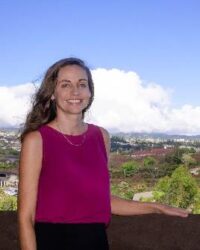 Amy Mehus is a licensed financial service professional devoted to creating change within our mental healthcare system. She studies ‘Pro-Consciousness Medicine’ and natural medicine at the International Quantum University for Integrative Medicine in Honolulu, Hawaii. She holds a Bachelor in Holistic Health Sciences and continues her studies through the university’s doctorate and PhD program.
Amy is a survivor of an extensive psychological crisis which included multiple STEs, beginning in her teens and lasting well into her twenties. She sought help through the mainstream mental healthcare system only to discover that understanding of psychological crises and the ability to assist were limited. She left the system and blazed her own path to recovery and transformation. Amy is now dedicated to sharing her experience and insights to help others and advocate for transforming our understanding and approach to mental healthcare.
Amy Mehus is a licensed financial service professional devoted to creating change within our mental healthcare system. She studies ‘Pro-Consciousness Medicine’ and natural medicine at the International Quantum University for Integrative Medicine in Honolulu, Hawaii. She holds a Bachelor in Holistic Health Sciences and continues her studies through the university’s doctorate and PhD program.
Amy is a survivor of an extensive psychological crisis which included multiple STEs, beginning in her teens and lasting well into her twenties. She sought help through the mainstream mental healthcare system only to discover that understanding of psychological crises and the ability to assist were limited. She left the system and blazed her own path to recovery and transformation. Amy is now dedicated to sharing her experience and insights to help others and advocate for transforming our understanding and approach to mental healthcare.Dr. Katrina Michelle
Experiencer Panel Discussion - Topic: Description of Challenges of STEs
Abstract
This presentation will highlight a panel discussion with three experiencers who will share their spiritually transformative experiences, to includes the challenges, wisdom, and changes they experienced as well as their integration process.Presenter Bio
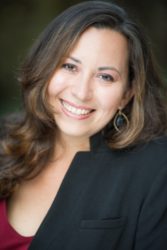 Katrina Michelle, PhD, LCSW, ACMHP, is a holistic psychotherapist based in New York City. Informed by her doctoral research on “spiritual resistance” at Sofia University in Palo Alto, California, and her own ineffable experiences, Katrina founded The Curious Spirit in 2016 to build community and support people in embracing and integrating the multifaceted human experience. In the summer of 2018, Katrina co-founded Emergent Entertainment, a company on a mission to demystify awakening experiences through storytelling and art. Emergent Entertainment is currently producing their first film, "When Lightning Strikes." By facilitating personal sessions, groups, creative media, and community events, Katrina strives to evolve mainstream systems so they acknowledge, honor, and include the spiritual component of human development. Katrina fully believes that a mainstream culture that reflects and supports this integrative model will catalyze our collective highest potential.
Katrina Michelle, PhD, LCSW, ACMHP, is a holistic psychotherapist based in New York City. Informed by her doctoral research on “spiritual resistance” at Sofia University in Palo Alto, California, and her own ineffable experiences, Katrina founded The Curious Spirit in 2016 to build community and support people in embracing and integrating the multifaceted human experience. In the summer of 2018, Katrina co-founded Emergent Entertainment, a company on a mission to demystify awakening experiences through storytelling and art. Emergent Entertainment is currently producing their first film, "When Lightning Strikes." By facilitating personal sessions, groups, creative media, and community events, Katrina strives to evolve mainstream systems so they acknowledge, honor, and include the spiritual component of human development. Katrina fully believes that a mainstream culture that reflects and supports this integrative model will catalyze our collective highest potential.Edy Nathan, MA, LCSWR, CST
Family Therapy Best Practices: The Near-Death Experience and Spiritual Emergency’s – How to Listen and Support intact Crucial Conversations
Abstract
As clinicians, there is often a struggle as to how to help family members understand the needs of someone who has had a near-death experience or a spiritual emergency. Learn the four elements to help you navigate this unknown territory with your clients. The four elements will enable you to listen with clarity, help them curate and identify their narratives, clarify how their perspectives have changed and how they presently interact, and respond to the here and now. The triangle of Grief, Fear, and Joy interacts with the triangle of family, friends, and professional relationships. From isolation to secrets learn 3 specific interactive tasks to help break through the misunderstandings that lead to isolation, and the sense that secrets are the only way to be safe.Presenter Bio
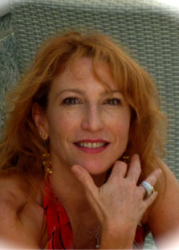 Edy Nathan, MA, LCSW, CST is a licensed psychotherapist and certified sex therapist with over 20 years of experience specializing in the integration of psychotherapy and the world of spirituality. She is a certified EMDR practitioner, regression therapist, and certified Hypnotherapist. In her expertise as a grief therapist, she interweaves her formal training as a psychotherapist with her views on trauma, abuse, and death. She believes that everyone experiences grief throughout their lives. Grief is not just about the death of a loved one, but the losses we experience in life. Having trained with renowned past life therapy regressionist, Brian Weiss, MD, spiritual leader Thomas Moore, PhD, and shamanic healer, Hank Wesselman, PhD.
Edy draws on her training to create a wide repertoire of tools that help people learn to live with their grief. Edy Nathan MA, LCSWR is an author, keynote speaker, workshop leader. She combines her works as a therapist with her work within the spiritual realm. As a licensed therapist, AASECT certified sex therapist, hypnotherapist, regressionist and certified EMDR practitioner with more than 20 years of experience. She has degrees from New York University and Fordham University, with post-graduate training at the Ackerman Institute for Family Therapy. She practices in New York City. She was the therapist on A&E tv’s Psychic Kids: Children of the Paranormal. She specializes in grief, loss and trauma throughout the life cycle and spiritual awakenings.
Edy Nathan, MA, LCSW, CST is a licensed psychotherapist and certified sex therapist with over 20 years of experience specializing in the integration of psychotherapy and the world of spirituality. She is a certified EMDR practitioner, regression therapist, and certified Hypnotherapist. In her expertise as a grief therapist, she interweaves her formal training as a psychotherapist with her views on trauma, abuse, and death. She believes that everyone experiences grief throughout their lives. Grief is not just about the death of a loved one, but the losses we experience in life. Having trained with renowned past life therapy regressionist, Brian Weiss, MD, spiritual leader Thomas Moore, PhD, and shamanic healer, Hank Wesselman, PhD.
Edy draws on her training to create a wide repertoire of tools that help people learn to live with their grief. Edy Nathan MA, LCSWR is an author, keynote speaker, workshop leader. She combines her works as a therapist with her work within the spiritual realm. As a licensed therapist, AASECT certified sex therapist, hypnotherapist, regressionist and certified EMDR practitioner with more than 20 years of experience. She has degrees from New York University and Fordham University, with post-graduate training at the Ackerman Institute for Family Therapy. She practices in New York City. She was the therapist on A&E tv’s Psychic Kids: Children of the Paranormal. She specializes in grief, loss and trauma throughout the life cycle and spiritual awakenings.William Peters, M.Ed., MFT
The Shared Death Experience: Clinical Methods to Harvest the Therapeutic Benefits
Abstract
In this presentation, William will define the Shared Death Experience, elaborate a typology, identify the remarkable aftereffects, and detail the clinical methods to optimize therapeutic benefit. William will present video case studies of experiencers from the Shared Crossing Research Initiative Library to illustrate the key features of the SDE. The presentation will include time for Q&A.Presenter Bio
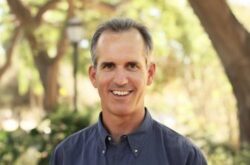 William J. Peters, M.A., M.Ed., is the founder of the Shared Crossing Project whose mission is to raise awareness and educate people about the profound and healing experiences that are possible for the dying and their loved ones. As the director of the Shared Crossing Research Initiative, William and his team collect and study extraordinary end-of-life experiences (shared crossings). He has developed methods to facilitate these shared crossings and to assist experiencers in meaningfully integrating their experiences. William conducts workshops and presents nationally on their research. He is a licensed psychotherapist at the Family Therapy Institute in Santa Barbara where he specializes in end-of-life counseling as a means toward psycho-spiritual evolution. William has worked as a Zen Hospice volunteer and his work is informed by his two near death experiences (SDEs) and a variety of shared death experiences as a hospice worker. William’s book, At Heaven’s Door: What Shared Journeys to the Afterlife Teach About Dying Well and Living Better, published by Simon & Schuster for worldwide release in 2022.
William J. Peters, M.A., M.Ed., is the founder of the Shared Crossing Project whose mission is to raise awareness and educate people about the profound and healing experiences that are possible for the dying and their loved ones. As the director of the Shared Crossing Research Initiative, William and his team collect and study extraordinary end-of-life experiences (shared crossings). He has developed methods to facilitate these shared crossings and to assist experiencers in meaningfully integrating their experiences. William conducts workshops and presents nationally on their research. He is a licensed psychotherapist at the Family Therapy Institute in Santa Barbara where he specializes in end-of-life counseling as a means toward psycho-spiritual evolution. William has worked as a Zen Hospice volunteer and his work is informed by his two near death experiences (SDEs) and a variety of shared death experiences as a hospice worker. William’s book, At Heaven’s Door: What Shared Journeys to the Afterlife Teach About Dying Well and Living Better, published by Simon & Schuster for worldwide release in 2022.* Information on Continuing Education Credit for Health Professionals
- CE credits for psychologists are provided by the Spiritual Competency Resource Center (SCRC) which is co-sponsoring this program. The Spiritual Competency Resource Center is approved by the American Psychological Association to sponsor continuing education for psychologists. The Spiritual Competency Resource Center maintains responsibility for this program and its content.
- The California Board of Behavioral Sciences accepts CE credits for LCSW, LPCC, LEP, and LMFT license renewal for programs offered by approved sponsors of CE by the American Psychological Association.
- LCSWs, MFTs, and other mental health professionals from states other than California need to check with their state licensing board as to whether or not they accept programs offered by approved sponsors of CE by the American Psychological Association.
- SCRC is approved by the California Board of Registered Nursing (BRN ProviderCEP16887) for licensed nurses in California.
- For questions about receiving your Certificate of Attendance, contact ACISTE at info@aciste.org. For questions about CE, visit www.spiritualcompetency.com or contact David Lukoff, PhD at CE@spiritualcompetency.com.
Resources
Sign Up for our Newsletter
Assist ACISTE
PLEASE CONSIDER SUPPORTING OUR EFFORTS WITH YOUR GENEROUS DONATION!